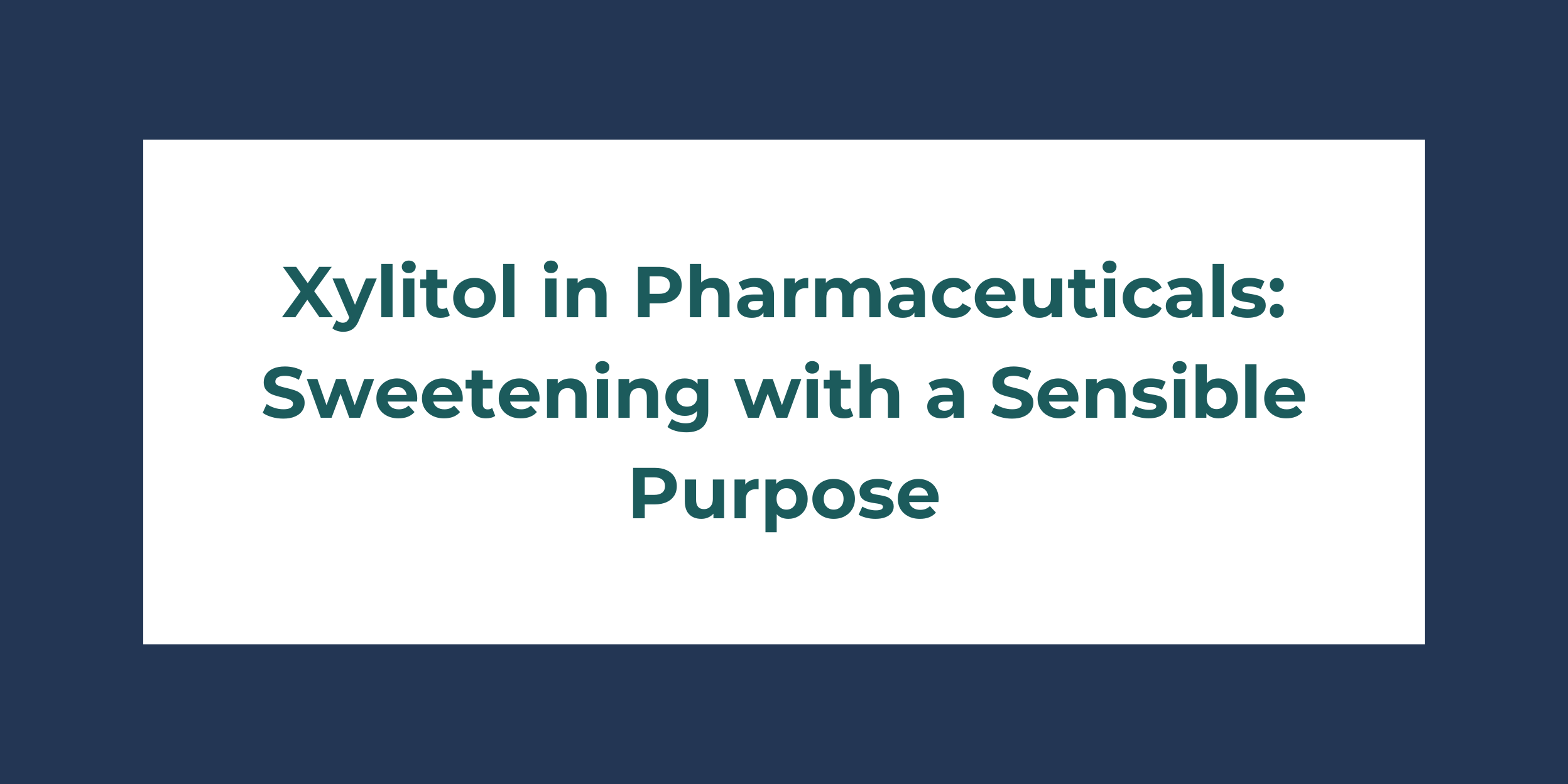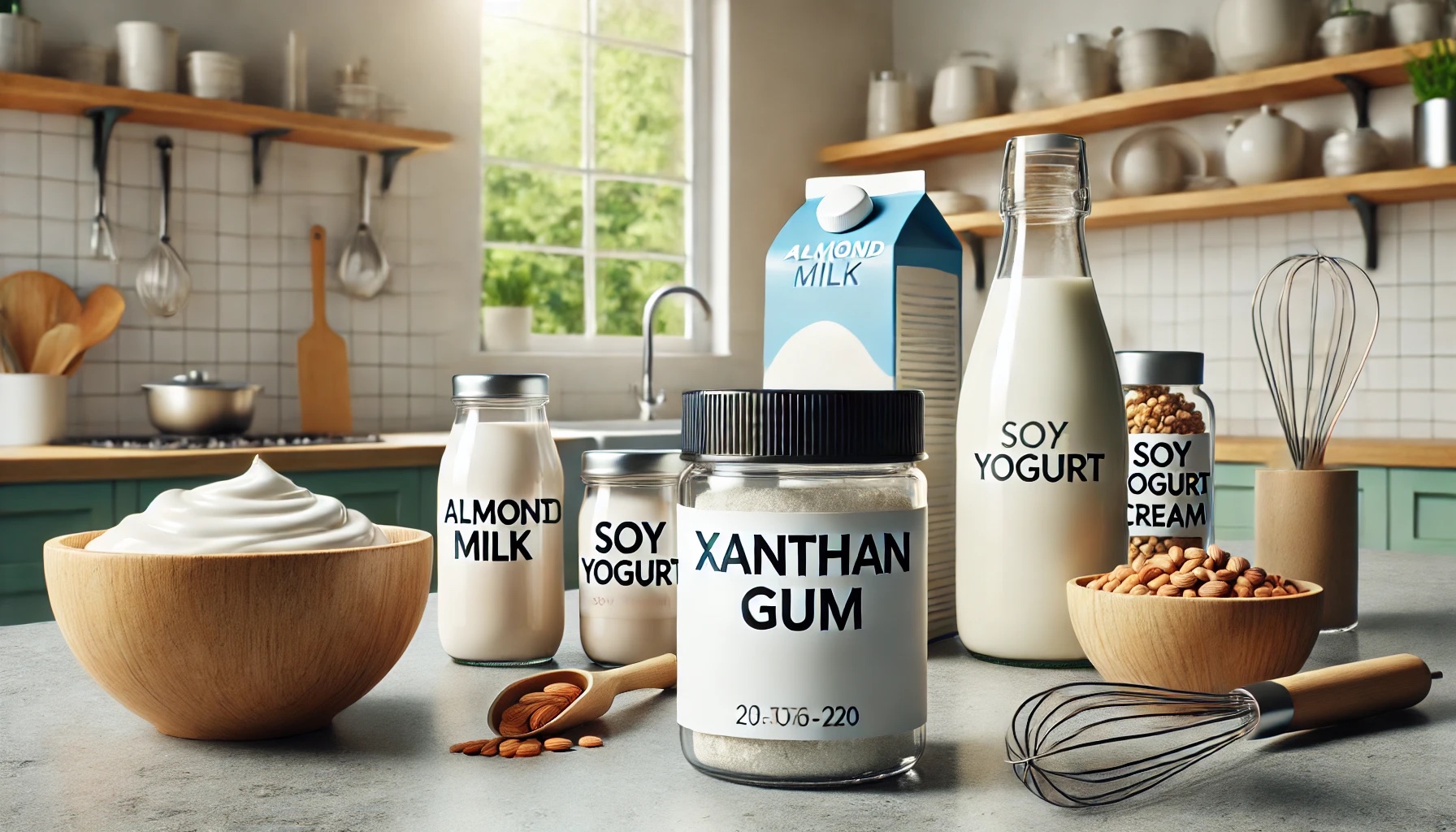Introduction to Xylitol
Xylitol is a naturally occurring sugar alcohol found in many fruits and vegetables.
It is widely recognized for its sweetening properties, providing a sweetness similar to that of sucrose but with fewer calories.
In the pharmaceutical industry, xylitol is gaining attention for its multifunctional benefits beyond sweetening.
This blog explores the various roles of xylitol in pharmaceuticals, highlighting its purpose and advantages.
Xylitol as a Sweetening Agent
Caloric Advantage
Xylitol provides approximately 40% fewer calories than regular sugar, making it an attractive option for calorie-conscious, zero sugar label or other clean label products.
This is particularly beneficial for medications aimed at diabetic patients or those managing weight, as it allows for the formulation of sweet-tasting drugs without contributing significantly to the overall caloric intake.
Pleasant Taste Profile
One of the main reasons xylitol is favored in pharmaceuticals is its pleasant taste profile.
Many active pharmaceutical ingredients (APIs) have a bitter or unpleasant taste, making medications difficult to consume, especially for children.
Xylitol masks these undesirable flavors effectively, improving patient compliance.
Dental Benefits of Xylitol in Medications
Cavity Prevention
Unlike traditional sugars, xylitol does not contribute to tooth decay.
In fact, it has been shown to inhibit the growth of Streptococcus mutans, the bacteria primarily responsible for cavities.
Incorporating xylitol into chewable tablets, lozenges, and oral suspensions can, therefore, help in maintaining oral health while delivering the required medication.
Saliva Stimulation
Xylitol stimulates saliva production, which is beneficial for patients suffering from dry mouth (xerostomia).
Increased saliva flow helps in neutralizing acids, repairing tooth enamel, and reducing the risk of dental caries.
Medications designed for dry mouth conditions often include xylitol for this reason.
Xylitol in Pediatric Pharmaceuticals
Improved Palatability
Getting children to take medicine can be a challenge, often due to the taste.
Xylitol, with its appealing sweetness, enhances the palatability of pediatric formulations, making it easier for caregivers to administer medicines.
This is particularly useful in syrups and chewable tablets.
Safe for Children
Xylitol is generally recognized as safe (GRAS) by regulatory authorities, and its use in children’s medications is well-supported by scientific evidence.
It does not spike blood sugar levels, making it a safe option for diabetic children as well.
Therapeutic Uses of Xylitol
Nasal and Sinus Health
Xylitol has been incorporated into nasal sprays and rinses due to its ability to inhibit the adhesion of bacteria and reduce the incidence of sinus infections.
Its moisturizing properties also help in keeping the nasal passages hydrated, providing relief from dryness and irritation.
Ear Infections
Research has shown that xylitol can reduce the incidence of acute otitis media (middle ear infections) in children.
Xylitol-containing chewing gum or syrups can be used as a preventative measure, reducing the need for antibiotic treatments.
Formulation and Stability
Stability in Pharmaceuticals
Xylitol is a stable compound that does not undergo significant degradation over time, ensuring the longevity and efficacy of pharmaceutical products.
This stability makes it a reliable ingredient in various dosage forms, including tablets, syrups, and chewables.
Compatibility with Other Ingredients
Xylitol is compatible with a wide range of pharmaceutical excipients, allowing for versatile formulation options.
Its hygroscopic nature (ability to attract moisture) can be advantageous in maintaining the desired moisture levels in certain formulations, enhancing the overall product quality.
Regulatory and Safety Considerations
Regulatory Approval
Xylitol is approved for use in pharmaceuticals by major regulatory bodies, including the FDA and EFSA.
Its inclusion in medications is well-documented, and guidelines for its use ensure safety and efficacy.
Safety Profile
Xylitol has a strong safety profile with minimal adverse effects.
While excessive consumption can lead to gastrointestinal discomfort in some individuals, the amounts used in pharmaceuticals are generally well-tolerated.
Its non-carcinogenic and non-toxic properties further enhance its suitability for widespread use.
Conclusion
Xylitol is more than just a sweetening agent in pharmaceuticals; it offers numerous health benefits that enhance patient compliance and therapeutic outcomes.
From improving the taste of medicines to providing dental health benefits and aiding in nasal and ear infections, xylitol’s multifunctional properties make it a valuable ingredient in the pharmaceutical industry.
As research continues to uncover new applications, the role of xylitol in pharmaceuticals is likely to expand, providing even more innovative solutions for healthcare.








